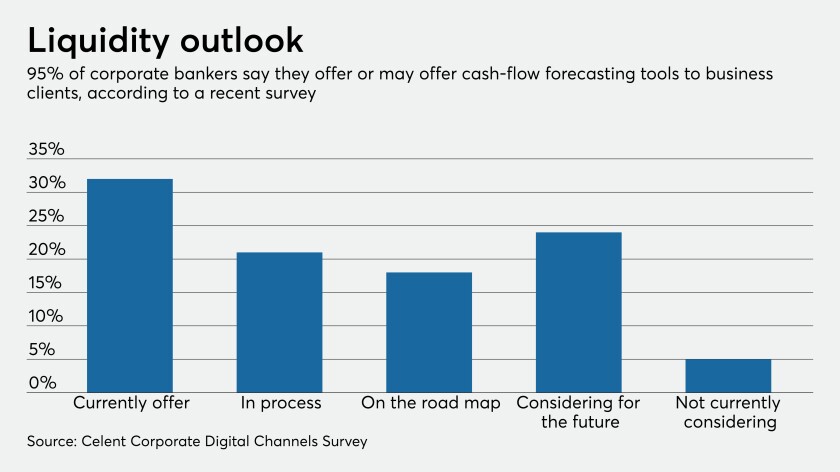The global bank has rolled out cash-flow forecasting tools as financial institutions race to meet urgent demands from commercial customers trying to navigate uncertain times.
Foreign banks for years have been using technology that folds several communication and information-sharing capabilities into one platform. Now Citigroup and others here are showing interest because of the growing importance of digital in the pandemic.
The digital bank, founded by a former Western Union president, offers tools to help low- and moderate-income people access their wages early, pay bills and engage in other financial services activities for a monthly fee.
The owner of The Shuckery in Petaluma, Calif., says she was unable to get a Paycheck Protection Program loan until she responded to an email from the delivery service and BlueVine.
KeyBank, Regions and others are using self-service portals, robotic processing automation and virtual assistants to digitize the collections process and make it more humane in anticipation of rising delinquencies.
Current, Stoovo and other companies are reaching out with low-cost, low-fee financial services and even tools to help users search for part-time jobs.
BBVA and Rockland Trust have taken a highly numbers-driven approach to branch reopenings. All banks are having to rethink their branch networks during the pandemic and beyond, and analytics software is helping.
Business models and adaptability will determine the success — or failure — of financial technology companies as they deal with fallout from the coronavirus outbreak.
The days of meeting with mentors and pitching investors in person are at least temporarily over, but fintech incubators, accelerators and boot camps are finding creative ways to replicate these valuable experiences online.
Challengers like Joust, Lili and NorthOne that offer banking services to freelancers and small-business owners are getting record levels of new customers as the traditional workforce thins.












